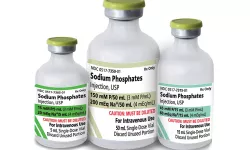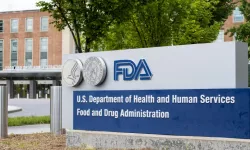Industry News

EAGAN, MN — Prime Therapeutics LLC/Magellan Rx Management, LLC released a new analysis of real-world integrated pharmacy and medical claims data, which shows 85 percent of individuals who newly started glucagon-like peptide-1 (GLP-1) agonist drugs for weight loss were no longer taking the drug after two years. This analysis is a follow-up to research presented by Prime/MRx in 2023, which found that 71 percent of individuals were no longer taking these drugs for weight loss at one year, representing a further 14 percent point decrease in persistence in just one year.
"Prime/MRx has been at the forefront of GLP-1 insights since we released our year-one research, and though we continue to see declines in persistence and adherence, we are committed to providing clients with actionable data and insights that can steer positive health outcomes for individuals," said David Lassen, PharmD, chief clinical officer at Prime/MRx. "GLP-1s are unlikely to deliver therapeutic value when so many individuals stop treatment after two years, but the findings also illustrate the need for obesity care management programs to improve adherence."
While real-world data is central to discussions about affordability and access, especially as the popularity of GLP-1 drugs for weight loss continues to climb, so too are comprehensive management strategies.
- KeepWell is Prime/MRx's solution designed for their members with a comprehensive, caring approach to manage cardiometabolic health, which supports sleep, nutrition, exercise, diabetes prevention and drug strategy to support better health outcomes.
- Prime/MRx's suite of offerings — including intervention programs, such as HighTouch Rx, utilization/formulary management and investigation resources to monitor potential fraud, waste and abuse — supports members to achieve intended health outcomes.
The recent research also found that although persistence among the 45 percent of the population using weekly-dosed semaglutide (Ozempic and Wegovy) was somewhat better, still only 1 in 4 of those initiating semaglutide treatment for obesity remained on GLP-1 therapy at two years. This also represents a 17-point decrease in weekly dosed semaglutide persistence from one year ago.
Additionally, it was found that at two years 26 percent of individuals switched GLP-1 drugs during therapy — an increase from 11 percent at one year. Eighty-one percent of individuals in the study identified as women.
"A significant number of individuals in this study switched GLP-1 drugs, and we will continue to assess the cause and monitor the impact of switching products over time," said Lassen. "Prime/MRx is committed to using our real-world research to help our clients make informed benefit decisions for GLP-1 coverage as they navigate this dynamic landscape."

ALEXANDRIA, VA — Bluesight, The Medication Intelligence Company, released its 2024 Diversion Trends Report, a comprehensive review of the impact of monitoring, prevention, and identification of controlled substance diversion in healthcare settings. Examining data across controlled substance transactions from January 2022 through December 2023, this report provides healthcare providers with critical insights to drive operational improvements and enhance patient safety.
Key highlights from the report include:
- Diversion Investigations are being closed 37 days sooner on average: a sign of enhanced workflows and more efficient evidence collection.
- Waste events, which can be a risk factor for diversion, added up to over 16 million wasted packages or approximately $38 million in lost costs.
- Top departments involved in variances include nursing (77.7%), anesthesiology (11.8%) and pharmacy (5%).
- Fentanyl (24%) is the top drug associated with variances, followed by Midazolam (15%), and Hydromorphone (10%).
- Discrepancies in controlled substance orders, administrations, wastes, or returns per hospital per quarter decreased by nearly 24% since 2022, enabling hospitals to better prioritize their diversion detection efforts.
- Half of transaction variances were flagged due to incorrect documentation, meaning there was mischarting or a discrepancy that reflected the wrong patient, drug, or dosage.
The report found that diversion monitoring efforts are improving, with fewer discrepant transactions (from 8% to 7%) and more efficient investigations. At the beginning of 2022, investigations were taking an average of 84 days to close. As of December 2023, they are being resolved 37 days sooner, averaging 47 days. Outside of this report, this trend continues into 2024 with investigations averaging only 38 days as of March 2024. This consistent decline indicates enhanced workflows and more efficient evidence collection, supported by increased staff resources for diversion as noted in the 2023-2024 Hospital Pharmacy Operations Report. The report also highlights risks for diversion, such as waste events of over 16 million wasted packages – nearly a quarter of which were Fentanyl packages, correlating with Fentanyl being the drug with the most discrepancies as well. Other patterns illustrated in the report include the top categories, drugs, settings, and staff roles associated with suspected and confirmed diversion.
"The challenge of drug diversion is an issue for all healthcare facilities, requiring a mix of consistent monitoring supported by technology and tools to help our healthcare workers effectively do their jobs. This report is a positive reminder of the impact that new systems can have in helping to tackle this problem. However, there is still more work to be done in this area," said Kevin MacDonald, Bluesight CEO, and co-founder. "By leveraging advanced data integration and comprehensive monitoring technology, such as ControlCheck, we are setting new standards. With our commitment to continued innovation and enhanced patient safety, we support over 850 hospitals in the critical mission to improve compliance, reduce costs and track high-risk drugs and individuals."
Report Methodology
The report examined data from Bluesight's ControlCheck product from January 2022 through December 2023, analyzing over 127M controlled substance transactions at 794 hospitals and health systems across the United States. During this period, the dataset increased from 354 hospitals to 794. The growth of total hospitals included in this analysis contributes to the growth of certain figures such as an increase in variances per quarter, investigations per quarter, and confirmed diversion per quarter.

SHIRLEY, NY — American Regent announces the launch and availability of Sodium Phosphates Injection, USP, which is FDA-approved and therapeutically equivalent to Sodium Phosphates.1 Sodium Phosphates Injection, USP 3 mM P/mL is indicated as a source of phosphorus, for addition to large volume intravenous fluids, to prevent or correct hypophosphatemia in patients with restricted or no oral intake. It is also useful as an additive for preparing specific parenteral fluid formulas when the needs of the patient cannot be met by standard electrolyte or nutrient solutions.
The concomitant amount of sodium (Na+ 4 mEq/mL) must be calculated into total electrolyte dose of such prepared solutions.
Sodium phosphate is contraindicated in diseases where high phosphorus or low calcium levels may be encountered, and in patients with hypernatremia.
"An important part of our company's mission is to assist in mitigating shortages and ensuring supply of critical medications whenever possible. To that end, we are pleased to add Sodium Phosphates Injection, USP to our robust line of products that are formulated, filled, and finished at our US-based manufacturing facilities," stated Joann Gioia, Vice President and Chief Commercial Officer at American Regent, Inc.
This product is available for immediate shipment.
See the following Important Safety Information, in addition to the product's Full Prescribing Information.

GUILDFORD, UK and DURHAM, NC — MedPharm, a global topical and transdermal Contract Development and Manufacturing Organization (CDMO) and Ampersand Capital Partners portfolio company, announced a merger with Tergus Pharma, a Great Point Partners portfolio company. The combined organization will operate under the MedPharm name, establishing a leading, end-to-end CDMO with robust scientific, clinical trial manufacturing and commercial production capabilities. As part of this transaction, Tergus Pharma CEO Michael Kane has been appointed CEO of MedPharm while Patrick Walsh will continue to serve as Executive Chairman of MedPharm.
The merged business is well-positioned as a global leader in delivering a full suite of drug development and manufacturing services to innovators of all sizes focused on advancing topical and transepithelial pharmaceuticals. The strategic combination of Tergus and MedPharm's capabilities enables commercial production and serialization to existing formulation development, in vitro testing and clinical manufacturing within one integrated organization. Expanded capabilities will also include the development and manufacture of hormone-based and highly potent drugs at the Company's GMP manufacturing facility in Durham, NC.
Michael Kane commented, "This strategic partnership is an exciting opportunity to deliver extensive pharmaceutical product development resources fueled by a robust team of scientific experts while leveraging our cutting-edge topical GMP facility to seamlessly meet our customers' commercial production needs. With locations in both the United Kingdom and the United States, we are well positioned to provide exceptional support to our existing and prospective pharmaceutical clients."
MedPharm Executive Chairman Patrick Walsh added "Pharma clients have been seeking a reliable, integrated service offering for their ophthalmic, topical and transdermal development and manufacturing projects. This merger creates an immediate option with two organizations already well-positioned in the industry."
Tergus lead investor Great Point Partners will retain a significant minority ownership stake in the newly combined MedPharm, while private equity firms Ampersand Capital Partners and Bourne Partners Strategic Capital assume majority ownership.

INDIANAPOLIS, IN — The U.S. Food and Drug Administration (FDA) approved Kisunla™ (donanemab-azbt, 350 mg/20 mL once-monthly injection for IV infusion), Eli Lilly and Company's Alzheimer's treatment for adults with early symptomatic Alzheimer's disease (AD), which includes people with mild cognitive impairment (MCI) as well as people with the mild dementia stage of AD, with confirmed amyloid pathology. Once-monthly Kisunla is the first and only amyloid plaque-targeting therapy with evidence to support stopping therapy when amyloid plaques are removed, which can result in lower treatment costs and fewer infusions.
"Kisunla demonstrated very meaningful results for people with early symptomatic Alzheimer's disease, who urgently need effective treatment options. We know these medicines have the greatest potential benefit when people are treated earlier in their disease, and we are working hard in partnership with others to improve detection and diagnosis," said Anne White, executive vice president and president of Lilly Neuroscience, Eli Lilly and Company. "Our deepest thanks to the patients and their loved ones for participating in our clinical programs and to Lilly scientists and collaborators persevering over decades of research. Each year, more and more people are at risk for this disease, and we are determined to make life better for them."
Amyloid is a protein produced naturally in the body that can clump together to create amyloid plaques. The excessive buildup of amyloid plaques in the brain may lead to memory and thinking issues associated with Alzheimer's disease. Kisunla can help the body remove the excessive buildup of amyloid plaques and slow the decline that may diminish people's ability to remember new information, important dates, and appointments; plan and organize; make meals; use household appliances; manage finances; and be left alone.
In the TRAILBLAZER-ALZ 2 Phase 3 study, people who were the least advanced in the disease experienced the strongest results with Kisunla. Trial participants were analyzed over 18 months in two groupings: one group who was less advanced in their disease (those with low to medium levels of tau protein) and the overall population, which also included participants with high tau levels. Treatment with Kisunla significantly slowed clinical decline in both groups. Those individuals treated with Kisunla who were less advanced in their disease showed a significant slowing of decline of 35% compared with placebo on the integrated Alzheimer's Disease Rating Scale (iADRS), which measures memory, thinking, and daily functioning. In the overall population, the response to treatment was also statistically significant using the iADRS at 22%. Among the two groups analyzed, participants treated with Kisunla had up to a 39% lower risk of progressing to the next clinical stage of disease than those taking placebo.
Among the overall population of participants, Kisunla reduced amyloid plaques on average by 61% at 6 months, 80% at 12 months, and 84% at 18 months compared to the start of the study. One of the treatment goals of the study was to remove amyloid plaques to minimal levels consistent with a visually negative scan using amyloid positron emission tomography (PET). If participants were confirmed to have reached these levels, they were able to complete treatment with Kisunla and switch to placebo for the remainder of the study.
Kisunla can cause amyloid-related imaging abnormalities (ARIA), which is a potential side effect with amyloid plaque-targeting therapies that does not usually cause symptoms. It can be detected via magnetic resonance imaging (MRI) scans and, when it does occur, may present as temporary swelling in an area or areas of the brain, which usually resolves over time, or as small spots of bleeding in or on the surface of the brain. Infrequently, larger areas of bleeding in the brain can occur. ARIA can be serious, and life-threatening events can occur. Kisunla can also cause certain types of allergic reactions, some of which may be serious and life-threatening, that typically occur during infusion or within 30 minutes post-infusion. Headache is another commonly reported side effect. See the Indication and Safety Summary with Warnings below for additional information.
"This approval marks another step forward in evolving the standard of care for people living with Alzheimer's disease that will ultimately include an arsenal of novel treatments, providing much needed hope to the Alzheimer's community. As a physician, I am encouraged by the potential to stop treatment, which could reduce out-of-pocket costs and infusion burden for eligible patients," said Howard Fillit, M.D., Co-Founder and Chief Science Officer at the Alzheimer's Drug Discovery Foundation (ADDF). "Diagnosing and treating Alzheimer's sooner than we do today has the potential to meaningfully slow disease progression, giving patients invaluable time to maintain their independence for longer."
Cost and Coverage
In the TRAILBLAZER-ALZ 2 trial, people were able to complete treatment and switch to placebo at 6, 12, or 18 months after they achieved one of the study's treatment goals, minimal levels of amyloid plaque consistent with a visually negative amyloid PET scan. In the overall population of people receiving Kisunla, 17% completed treatment at 6 months, 47% at 12 months, and 69% at 18 months based on an assessment of amyloid levels via an amyloid PET scan.
The total cost of Kisunla will vary by patient based on when they complete treatment. The FDA's dosing instructions state that prescribers can consider stopping the dosing of Kisunla based on removal of amyloid plaques to minimal levels as observed on amyloid PET imaging. The potential to complete treatment after a limited-duration course of therapy, along with 30-minute infusions once per month, could result in lower patient out-of-pocket treatment costs and fewer infusions compared to other amyloid-targeting therapies.
Patients' out-of-pocket cost for treatment with Kisunla will depend on their length of treatment and their insurance. Coverage and reimbursement for Kisunla are now available for eligible patients on Medicare under a National Coverage Determination with Coverage with Evidence Development. Also, as of October 2023, broad coverage and reimbursement for amyloid PET scans are available for eligible patients on Medicare. More than 98% of eligible Medicare patients have coverage that eliminates, limits, or caps their annual out-of-pocket exposure.
Lilly Support ServicesLilly Support Services for Kisunla is a free support program committed to helping patients navigate treatment with Kisunla. The program includes offerings such as coverage determination assistance, care coordination, nurse navigator support, and customized support and resources. For more information about Lilly Support Services and Kisunla, visit www.Kisunla.Lilly.com or call 1-800-LillyRx (1-800-545-5979).

NORTH CHICAGO, IL — AbbVie announced that the European Medicines Agency's (EMA) Committee for Medicinal Products for Human Use (CHMP) has adopted a positive opinion recommending the conditional marketing authorization of epcoritamab (TEPKINLY), the first and only T-cell engaging bispecific antibody administered subcutaneously (under the skin), as a monotherapy for the treatment of adult patients with relapsed or refractory (R/R) follicular lymphoma (FL) after two or more prior therapies. The European Commission decision on this indication for epcoritamab is anticipated later this year.
"Patients with follicular lymphoma are likely to face disease recurrence and shorter durability of response with each subsequent line of treatment. This positive opinion recognizes the unmet need in the European Union for individuals with relapsed or refractory follicular lymphoma, following failure of other therapies," said Mariana Cota Stirner, M.D., Ph.D., vice president, therapeutic area head for hematology, AbbVie.
FL is typically an indolent (or slow-growing) form of non-Hodgkin's lymphoma (NHL) that arises from B-lymphocytes and is the second most common form of NHL accounting for 20-30% of all cases. In 2023, there were an estimated 13,000 cases of FL in Western Europe. FL is considered incurable with current standard of care therapies.
The CHMP opinion is supported by overall and complete response data from the Phase 1/2 EPCORE NHL-1 clinical trial in 128 patients with R/R FL treated with epcoritamab after two or more lines of prior therapy. The study included patients who were refractory to both anti-CD20 monoclonal antibody therapy and an alkylating agent, patients who were refractory to last prior treatment, and patients whose disease progressed within two years of first systemic therapy. The safety profile of epcoritamab in the pivotal cohort was similar to reports of epcoritamab monotherapy in the pivotal EPCORE NHL-1 diffuse large B-cell lymphoma (DLBCL) cohort.
An additional cohort of 86 patients evaluated a 3-step-up dosing (SUD) schedule to reduce the incidence and severity of cytokine release syndrome (CRS), which is an associated adverse effect from immune-engaging cancer treatments. For the first full dose of this 3-step regimen, mandatory hospitalization was not required. In this cohort, the incidence of CRS was 49% (42 of 86 patients; 9% were grade 2). There were no grade 3 or higher CRS events. The data from this optimization cohort of the EPCORE NHL-1 study were recently published in the Lancet Haematology.
"Each year, thousands of people in Europe are diagnosed with follicular lymphoma, and it's an upsetting reality that many of them will experience relapse and refractory disease," said Catherine Thieblemont, M.D., Ph.D., head of the hemato-oncology department, Paris University, Hôpital Saint-Louis Assistance-Publique-Hopitaux de Paris (APHP) in Paris. "Patients deserve new treatment options, and this positive opinion is the first step to bringing epcoritamab to more patients who need it."
Epcoritamab is being co-developed by AbbVie and Genmab as part of the companies' oncology collaboration. The companies will share commercial responsibilities in the U.S. and Japan, with AbbVie responsible for further global commercialization. Both companies will pursue additional international regulatory approvals for the investigational R/R FL indication and additional approvals for the R/R DLBCL indication.
About the Phase 1/2 EPCORE NHL-1 Trial
EPCORE NHL-1 is an open-label, multi-center safety and preliminary efficacy trial of epcoritamab that consists of three parts: a dose escalation part; an expansion part; and an optimization part. The trial was designed to evaluate subcutaneous epcoritamab in patients with relapsed, progressive or refractory CD20+ mature B-cell non-Hodgkin's lymphoma (B-NHL), including FL. In the expansion part, additional patients were enrolled to further explore the safety and efficacy of epcoritamab in three cohorts of patients with different types of relapsed/refractory B-NHLs who have limited therapeutic options. The optimization part evaluates the potential for alternative step-up dosing regimens to help further minimize Grade 2 cytokine release syndrome (CRS) and mitigate Grade ≥3 CRS. The primary endpoint of the expansion part was ORR as assessed by an IRC. Secondary efficacy endpoints included duration of response, complete response rate, duration of complete response, progression-free survival, and time to response as determined by the Lugano criteria. Overall survival, time to next therapy, and rate of minimal residual disease negativity were also evaluated as secondary efficacy endpoints. The primary endpoint of the optimization part was the rate of ≥ Grade 2 CRS events and all grade CRS events from first dose of epcoritamab through 7 days following administration of the second full dose of epcoritamab.
Topline results of the study were shared in December 2023. More information can be found on www.clinicaltrials.gov (NCT03625037).
About Follicular Lymphoma (FL)
FL is typically an indolent (or slow-growing) form of non-Hodgkin's lymphoma (NHL) that arises from B-lymphocytes and is the second most common form of NHL accounting for 20-30% of all cases. FL is considered incurable with current standard of care therapies. Patients often relapse and with each relapse, the remission and time to next treatment is shorter. Over time, transformation to DLBCL, an aggressive form of NHL associated with poor survival outcomes, can occur in more than 25% of FL patients.
About Epcoritamab
Epcoritamab is an investigational IgG1-bispecific antibody created using Genmab's proprietary DuoBody technology and administered subcutaneously. Genmab's DuoBody-CD3 technology is designed to direct cytotoxic T cells selectively to elicit an immune response toward target cell types. Epcoritamab is designed to simultaneously bind to CD3 on T cells and CD20 on B cells and induces T-cell-mediated killing of CD20+ cells.
Epcoritamab (approved under the brand name EPKINLY in the United States and TEPKINLY in the European Union) has received regulatory approval in certain lymphoma indications in several countries.
AbbVie will continue to pursue regulatory submissions for epcoritamab across international markets. Both Genmab and AbbVie continue to evaluate the use of epcoritamab as a monotherapy and in combination across lines of therapy in a range of hematologic malignancies.

ROSEMONT, IL — Long Grove Pharmaceuticals, LLC, a supplier of differentiated pharmaceuticals, will bring new supply of Sodium Bicarbonate Injection, USP to the United States. Sodium Bicarbonate Injection, USP is commonly used in critical care settings yet routinely found on the drug shortages list.
"As we look at the launch of our next pharmaceutical products, our focus is always on the area of greatest need. Sodium Bicarbonate Injection supply is historically unstable, creating a challenging environment for hospitals and the patients they serve," said Peter Karas, Chief Commercial Officer at Long Grove Pharmaceuticals. "We’re excited by the opportunity to help alleviate drug shortages for this product and continue our commitment to ensuring patients have access to the medicine they need.”
Long Grove’s Sodium Bicarbonate Injection, USP is Food and Drug Administration (FDA) approved and AP rated. The company will launch its 8.4% Sodium Bicarbonate Injection, USP 50 mEq/ 50 mL vials in the second half of 2024.
Sodium Bicarbonate Injection, USP is indicated in the treatment of metabolic acidosis from severe renal disease, uncontrolled diabetes and cardiac arrest. It is most frequently used in critical care settings.

SAN DIEGO, CA — Halozyme Therapeutics, Inc. announced that argenx received U.S. Food and Drug Administration (FDA) approval for VYVGART® Hytrulo co-formulated with ENHANZE®, Halozyme's proprietary recombinant human hyaluronidase enzyme, rHuPH20, for the treatment of adults with chronic inflammatory demyelinating polyneuropathy (CIDP).
VYVGART® Hytrulo for CIDP is FDA-approved as a once weekly 30-to-90 second subcutaneous (SC) injection. This approval also represents the second FDA-approved indication for VYVGART® Hytrulo with ENHANZE®.
"With this approval, CIDP patients in the U.S. will have access to the first novel mechanism of action to treat CIDP in 30 years, which lessens the burden of treatment as a 30 to 90 second weekly SC injection," said Dr. Helen Torley, president and chief executive officer of Halozyme. "We look forward to continuing to support argenx with our ENHANZE technology that has enabled improved treatment options that provide meaningful benefits for patients and healthcare providers."
The FDA approval is based on the ADHERE study, the largest clinical trial to date studying CIDP. In the ADHERE study, 69% (221/322) of patients treated with VYVGART® Hytrulo, regardless of prior treatment, demonstrated evidence of clinical improvement, including improvements in mobility, function and strength. ADHERE met its primary endpoint (p<0.0001) demonstrating a 61% reduction (HR: 0.39 95% CI: 0.25; 0.61) in the risk of relapse versus placebo. 99% of trial participants elected to participate in the ADHERE open-label extension. The safety results were generally consistent with the known safety profile of VYVGART® in previous clinical studies and real-world use.
VYVGART® Hytrulo is also approved in the U.S. for the treatment of generalized myasthenia gravis in adult patients who are anti-acetylcholine receptor antibody positive.

The Food and Drug Administration (FDA or Agency) is announcing the availability of a draft guidance for industry entitled Considerations for Demonstrating Interchangeability with a Reference Product: Update. This draft guidance describes considerations regarding a switching study or studies intended to support a demonstration that a biological product is interchangeable with a reference product.
"Both biosimilars and interchangeable biosimilars meet the same high standard of biosimilarity for FDA approval and both are as safe and effective as the reference product," said Sarah Yim, director of the Office of Therapeutic Biologics and Biosimilars at the FDA.
FDA issued the guidance for industry Considerations in Demonstrating Interchangeability With a Reference Product (May 2019) (Interchangeability Guidance) before receiving and reviewing any biologics license applications (BLAs) submitted under section 351(k) of the Public Health Service Act (PHS Act) for a proposed interchangeable biosimilar. Since publication of the Interchangeability Guidance, experience has shown that for the products approved as biosimilars to date, the risk in terms of safety or diminished efficacy is insignificant following single or multiple switches between a reference product and a biosimilar product. Accordingly, FDA’s scientific approach to when a switching study or studies may be needed to support a demonstration of interchangeability has evolved. As described in this draft guidance, applicants for proposed interchangeable products may choose to provide an assessment of why the comparative analytical and clinical data provided in the application or supplement support a showing that the switching standard set forth in section 351(k)(4)(B) of the PHS Act has been met.
Per the FDA, this guidance is being distributed for comment purposes only. Submit Comments by 08/20/2024, the agency requests, to ensure that your comment can be considered on a draft guidance before it begins work on the final version of the guidance, submit either online or written comments on the draft guidance before the close date.

“Programs like RxPass help reduce cost, while increasing convenience for caregivers, and customers of all ages, which is shown to improve medication adherence and support better health outcomes,” said John Love, Vice President of Amazon Pharmacy. “Many people don’t realize that even if you have great insurance, you can still save on select medications by using programs like RxPass. The overall cost of medications can be lower, and that’s not even factoring in the time and effort saved from not having to drive to a pharmacy or stand in line.”